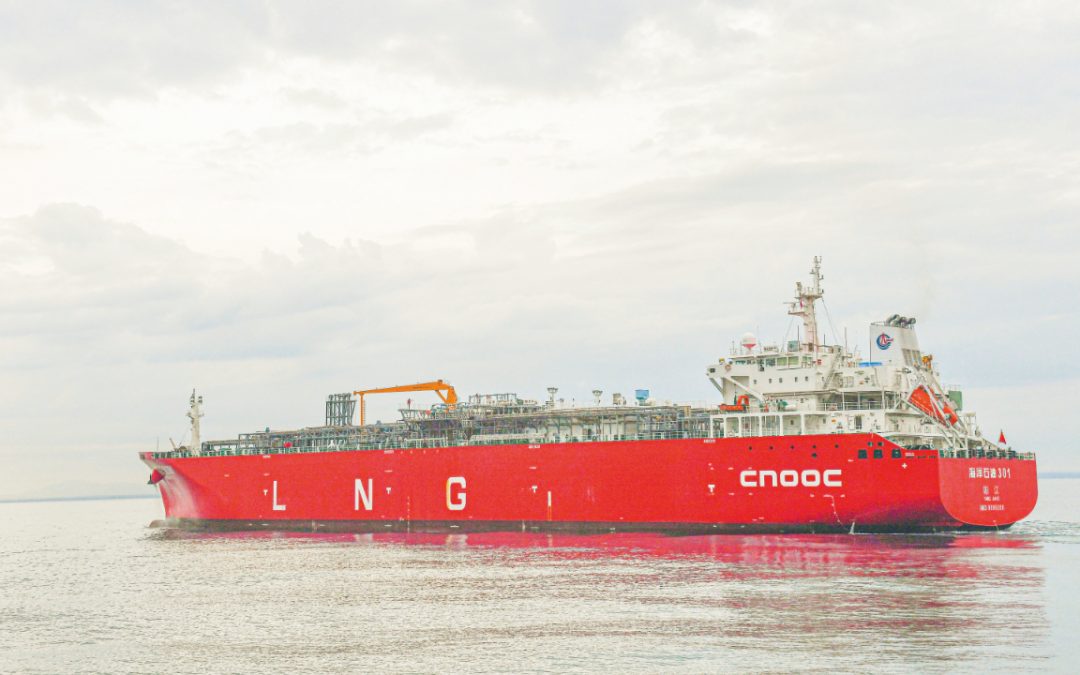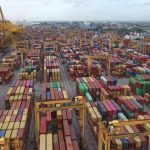MISC is pleased to announce its financial results for the first quarter ended 31 March 2023.
Financial Highlights:
•Group revenue for the quarter ended 31 March 2023 was higher than the corresponding quarter ended 31 March 2022.
•Group operating profit for the quarter ended 31 March 2023 was higher than the corresponding quarter ended 31 March 2022.
•Group profit before tax for the quarter ended 31 March 2023 was higher than the corresponding quarter ended 31 March 2022.
•Group cash flows generated from operating activities for the quarter ended 31 March 2023 were higher than the corresponding quarter ended 31 March 2022.
Capt. Rajalingam Subramaniam, MISC’s President and Group Chief Executive Officer, said, “I am happy to announce that MISC has recorded a healthy financial performance in the first quarter of 2023. Our robust performance stems from our core strength of forging partnerships with strategic clients, championed by our team who is committed to our strategic aspirations. Nevertheless, we are attentive to the slowing global growth and changing energy needs worldwide. As we embark on our business transformative journey, we are determined to seize these opportunities, capitalising on our financial and brand strength, both regionally and globally. My appreciation to team members and stakeholders for their continued support, as always.”
Group Revenue, Operating Profit, Profit Before Tax and Cash Flows from Operating Activities for the Quarter Ended 31 March 2023
Group revenue for the quarter ended 31 March 2023 of RM3,078.7 million was RM211.1 million or 7.4% higher than the corresponding quarter’s revenue of RM2,867.6 million contributed by improved freight rates in the Petroleum & Product Shipping segment and higher revenue from ongoing projects coupled with higher dry-docking and repair activities in the Marine & Heavy Engineering segment. The increase in Group’s revenue was, however, offset by lower revenue recognition from the conversion of a Floating, Production, Storage and Offloading unit (“FPSO”) in the Offshore Business segment.
Group operating profit for the quarter ended 31 March 2023 of RM825.5 million was RM308.6 million or 59.7% higher than the corresponding quarter’s profit of RM516.9 million mainly contributed by higher margin on freight rates in the Petroleum & Product Shipping segment coupled with higher profit in the Offshore Business segment. The Offshore Business segment recorded higher profit in the quarter ended 31 March 2023 as the corresponding quarter was affected by an increase in construction costs of an FPSO arising from the global supply chain issue and lockdowns in parts of China, which affected the movement of project personnel, goods, and services as well as from engineering, procurement, and construction activities.
The Group reported a profit before tax of RM627.6 million, which was RM241.0 million or 62.3% higher compared to the corresponding quarter’s profit before tax of RM386.6 million, mainly due to higher operating profit as mentioned above coupled with a higher share of profit from joint venture entities, despite higher recognition of impairment of non-current assets in the current quarter.
The Group recorded net cash flows generated from operating activities of RM907.1 million for the quarter ended 31 March 2023, which was RM445.5 million or 96.5% higher compared to RM461.6 million in the corresponding quarter, mainly due to higher operating performance in the current quarter. In addition, the Group recorded lower payments for costs relating to turnkey activities for the conversion of an FPSO amounting to RM625.8 million in the current quarter compared to payments of RM687.5 million in the corresponding quarter. Excluding the payments for the above turnkey activities, the Group’s adjusted net cash generated from operating activities was RM1,532.9 million in the current quarter, which was RM383.8 million or 33.4% higher compared to RM1,149.1 million in the corresponding quarter.
Moving Forward
In the LNG shipping market, spot rates remained subdued in the first quarter of 2023 as mild winters and ample gas storage inventories in Europe and major Asian countries contributed to the increase in tonnage availability. As a result of the subdued spot rates, there is a rising preference by charterers to lock in charters at fixed time charter rates due to the uncertainty in the market. While prospects remain promising as demand is showing signs of recovery, limited supply growth will keep the supply and demand balance tight through 2023. Notwithstanding the above, the operating income for the Gas Assets & Solutions segment is expected to remain steady, underwritten by its portfolio of long-term charters.
Meanwhile, market rates for the petroleum shipping market remained firm in the first quarter of 2023 despite seasonal softening in demand and average tanker rates. The tanker market outlook remains positive as the recent shift in trade patterns will support tonne-mile demand and the concerns over the possible disruption to the Russian crude flows have eased. However, some moderation in overall average tanker rates is expected in the coming months as the OPEC+ production curbs are likely to squeeze oil supply in the short term. Given the current landscape, the Petroleum & Product Shipping segment has been continuing to improve the quality of its income and balance sheet through its niche shuttle tanker business and rejuvenation of its fleet with greener-fuelled tankers.
The global upstream capital expenditure (“CAPEX”) spending continues to increase in 2023 driven by high oil prices, strong cash flows and improved global oil demand. The outlook for the upstream oil and gas sector remains promising despite growing concerns on global recession and the world economy. This positive momentum will provide a huge uptick in the global FPSO market in the coming years, leading to a higher number of FPSO awards in the near term, coming from the South American region, led by Brazil, followed by West Africa. The Offshore Business segment will selectively pursue new opportunities in the market whilst focusing on the execution of the project in hand and undertake mitigation measures to minimise cost and schedule pressures. In the
meantime, the existing portfolio of long-term contracts will continue to support the segment’s financial performance.
The Marine & Heavy Engineering segment remains cautiously optimistic on the outlook for its Heavy Engineering sub-segment in view of the growing risks of global recession and geopolitical tensions which could slow down business prospects despite the possibilities of new business opportunities resulting from the growth in CAPEX spending and renewable energy and decarbonisation efforts. Meanwhile, the Marine sub-segment is expected to remain challenging mainly due to stiff competition from Chinese shipyards amidst the re-opening of China’s borders and limited dry-docking opportunities as older LNG carriers decommission from service due to inability to comply with Energy Efficiency Existing Ship Index (“EEXI”) and Carbon Intensity Indicator (“CII”) requirements imposed by the International Maritime Organization (“IMO”). The segment continues to prioritise on improving project execution and successful delivery of current projects via operational and cost efficiency, and aims to capture opportunities in the domestic and international markets as well as those in the renewable energy and decarbonisation sectors to sustain and grow its order book.
Source: Hellenic Shipping News






